Menu
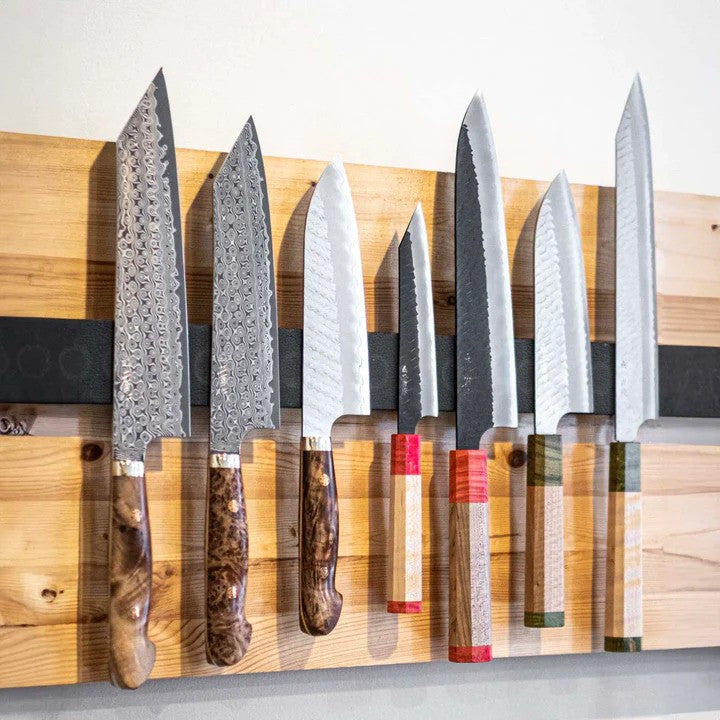
THE BLACKSMITH
RYUSEN HAMONO
- Choosing a selection results in a full page refresh.
















Usually ready in 1 hour
| Blade Length | 210 mm |
| Total Length | 355 mm |
| Steel | VG-10 Stainless |
| Handle | Micarta |
| Ferrule | Welded Steel |
| Rockwell | 60 |
| Height Spine to heel | 30 mm |
| Width at Spine | 2.06 mm |
| Weight | 163 grams |
| Bevel | Double (50/50) |
— Hammered Damascus kitchen knife pursuing glittering beauty and sharpness to an absolute maximum —
Hammered Damascus steel carefully polished by artisans is used. A high-end steel material VG-10 is used as the core (steel), which is sandwiched by 33-layer Damascus steel made by laminating and forging alternate soft and hard stainless steel sheets, achieving long-lasting sharpness. The beautiful hammered surface asperities create an air layer between the food and the blade, making the cut pieces easy to separate from the blade.
In creating the Tangan RYU Premium Series, we studied the grip, the weight balance and other factors while assuming various methods of food preparation based on opinions from professional cooks to make improvements into details. These improvements and careful handwork by artisans finally brought about a kitchen knife that alleviates users’ fatigue or pain even during extended periods of use, providing dramatically improved usability. Try this beautiful high-class model that features excellent sharpness, resistance to rust, durability and practicality.
[Product receiving the Good Design Award in 2016]
The Tanganryu line features gorgeous black mircata handles with a full welded stainless steel tang, and ferrule where these knives balance. This balance point is more typical of European style cutlery so if you're interested in Japanese steel with a French/German feel these are a great option. Equally beautiful is the Tsuchime finish and Damascus pattern made from VG-10 stainless steel providing easy maintenance. The fit and finish is as close to perfect as we've seen and no detail has been overlooked, including the packaging for those who appreciate a nice knife box! ;)
The Sujihiki is meant for all things slicing. The long slender blade allows the user to perform nice long strokes and avoid sawing through proteins which leads to perfect, thin slices and no more tearing. Carving roasts, slicing brisket, thinly slicing fish are all within its grasp.
Follow these care recommendations for your Japanese knives to protect the edge and keep them sharp as long as possible:
All products are shipped within 24 hours. We offer same day shipping for products ordered by 12pm. Please allow 4-7 business days for your shipment to arrive with standard shipping. Expedited shipping options are also available at checkout.
We offer free shipping on orders within Canada over $150 CAD and free shipping on orders to the US over $200 USD.
Curbside pick-up is available at both our Hamilton and Etobicoke locations.
To make sure our customers are always satisfied, we offer full refunds on products for 14 days after receiving them. See our full return policy for details.
More questions? Check out our shipping policy, our return policy, or reach out to us directly.


Bread knives typically have a long, narrow blade with a serrated edge. The serrations allow it to slice through crusty bread without crushing the soft interior. Additionally, its length allows the user to make clean, even cuts across short and wide loaves alike. These knives are practical for cutting not only bread, but also pastries and even delicate foods like tomatoes.
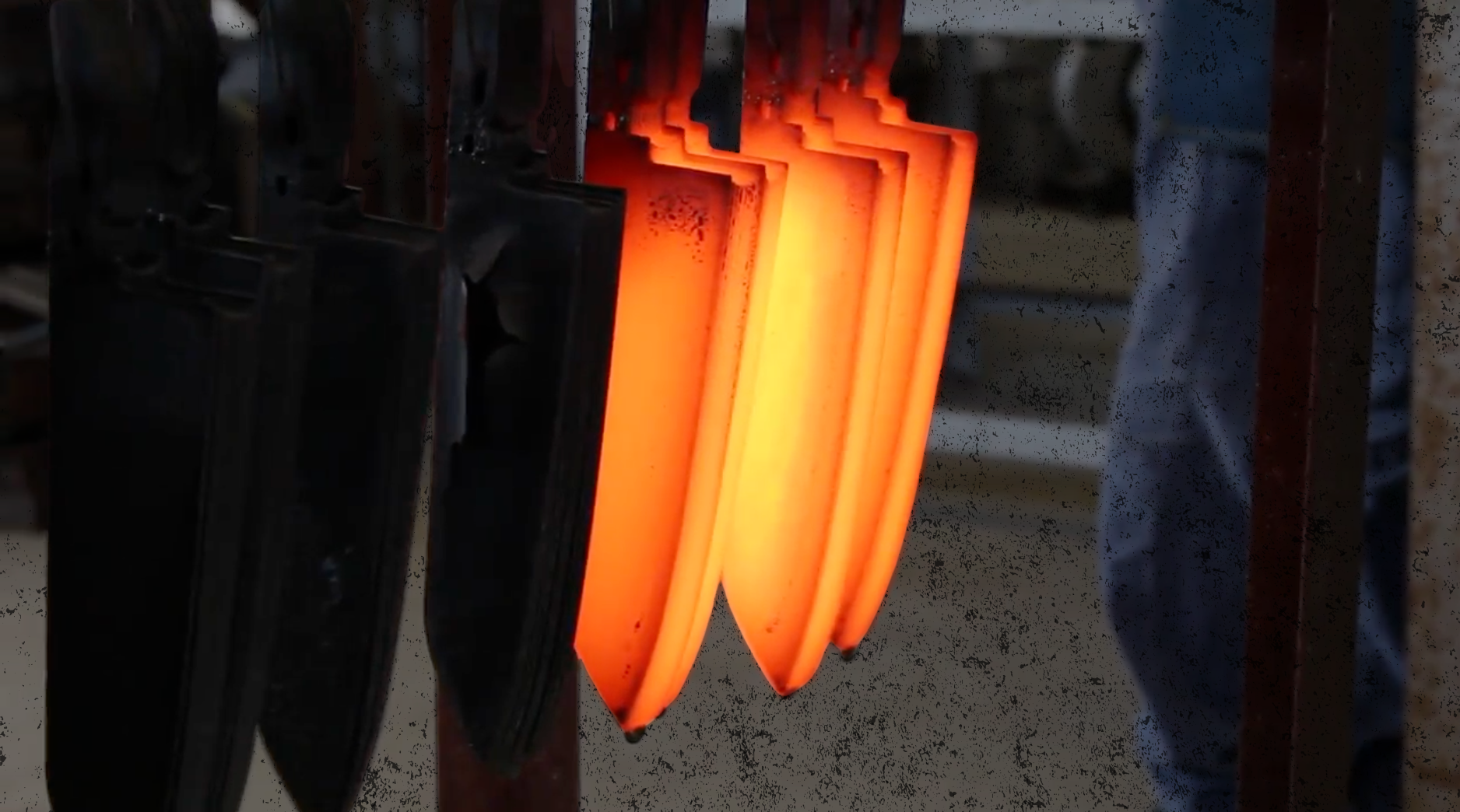
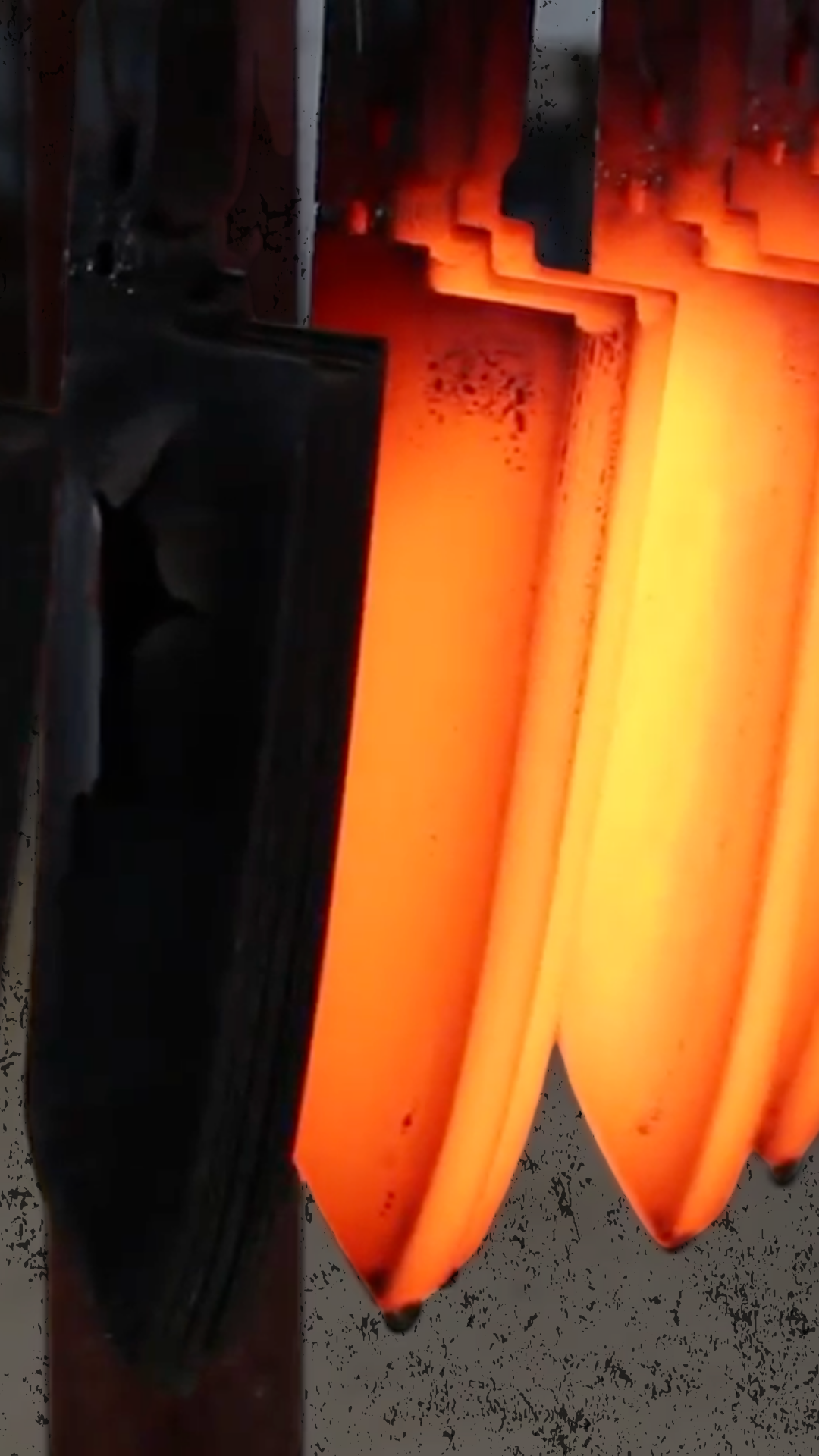
Likely the most widely used Japanese stainless steel, it provides great rust resistance, very good edge retention, and is relatively easy to sharpen. Because of how many companies use this steel to produce their knives, it can sometimes get a bad rep, but we have had nothing but positive experiences using and sharpening it. Knives made from this steel are generally a bit more affordable compared to those made from steels like R2 and ZDP189 while still offering fantastic performance and easy maintenance.
Chemical Composition:
C 0.95-1.05% | Cr 14.5-15.5% | Mo 0.9-1.2% | V 0.1-0.3% | Co 1.3-1.5%
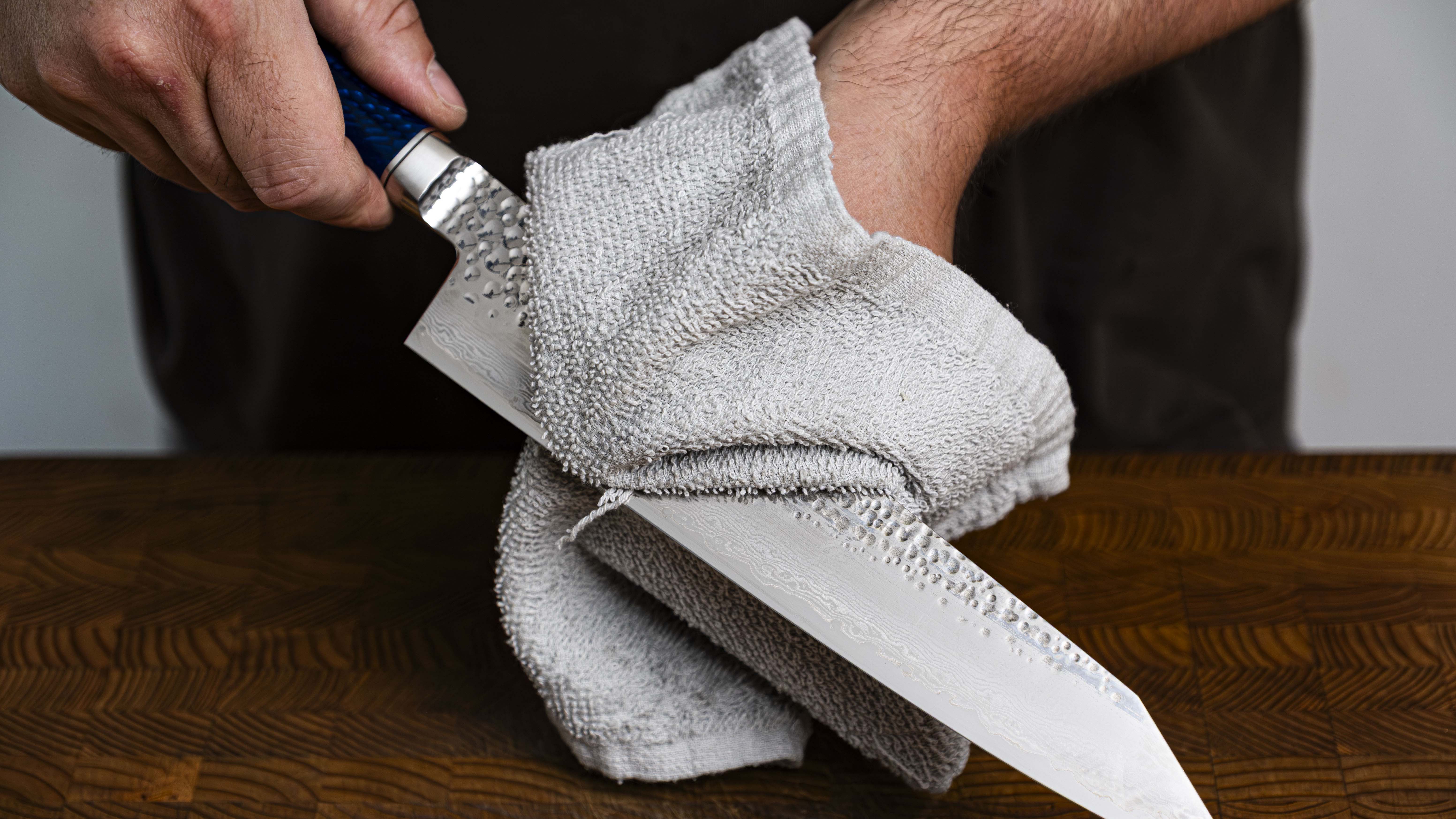
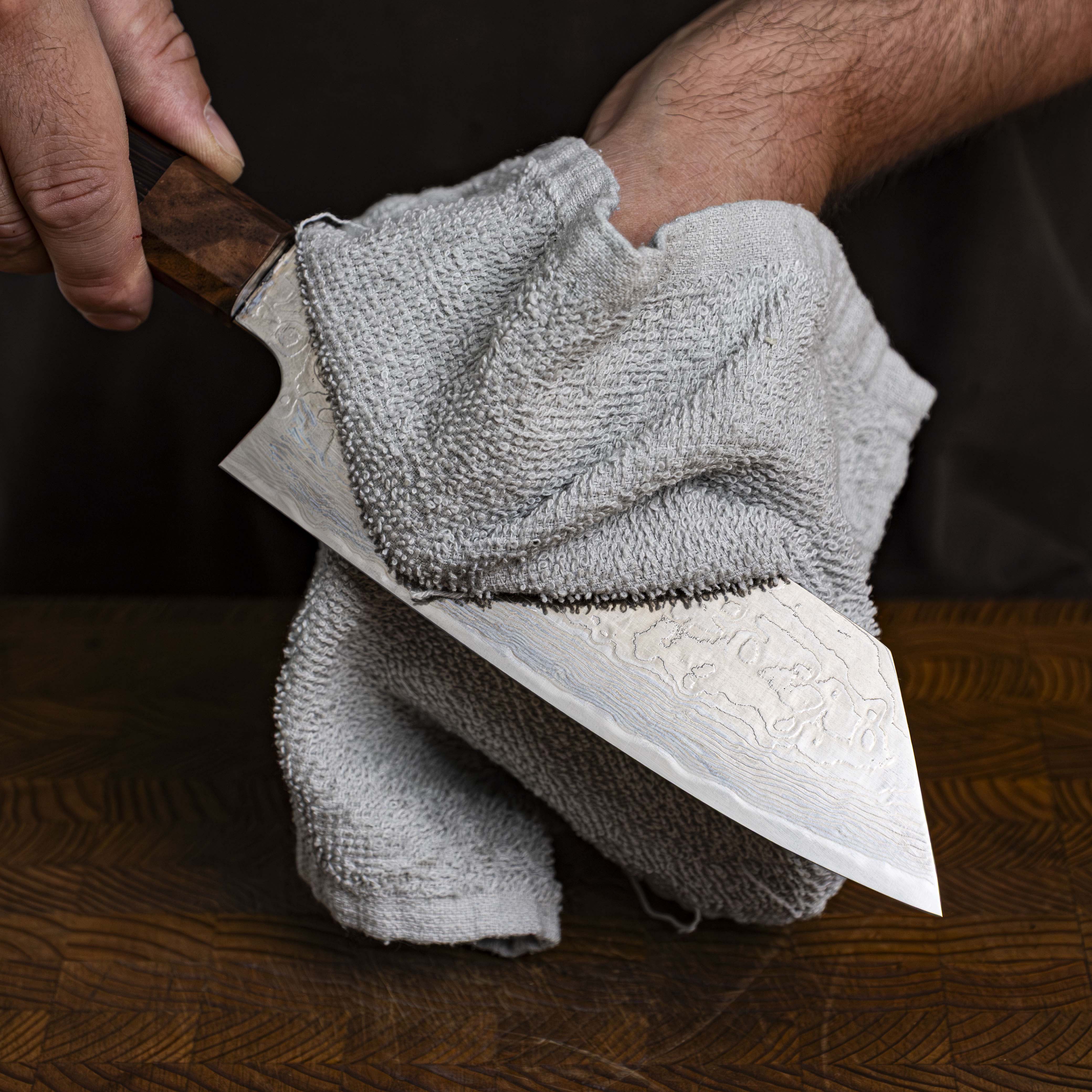
LOW MAINTENANCE
Stainless steel Japanese knives are made in a process called “Sanmai” or “Forge welding” where two softer layers of stainless steel are laminated around a harder core layer of stainless steel. All three of these layers are rust resistant and therefore are not susceptible to rust or discoloration. The softer outer layers of steel are used to make the knife more durable and flexible while the harder core layer is used to provide better edge retention to the blade.

Ryusen Hamono is a maker of the renowned Takefu Knife Village in Echizen City, Fukui Prefecture, Japan. They fully embrace the tradition of the region and take great pride in every step of the knife making process. They produce knives with both modern and traditional techniques, creating excellent finishes that are beautiful and comfortable to hold. Each blade is hand sharpened to be impeccable straight out of the box. Winners of numerous design awards and supporters of the Japanese national team at the Bocuse D'or, their knives are popular with professional chefs and home cooks alike.
